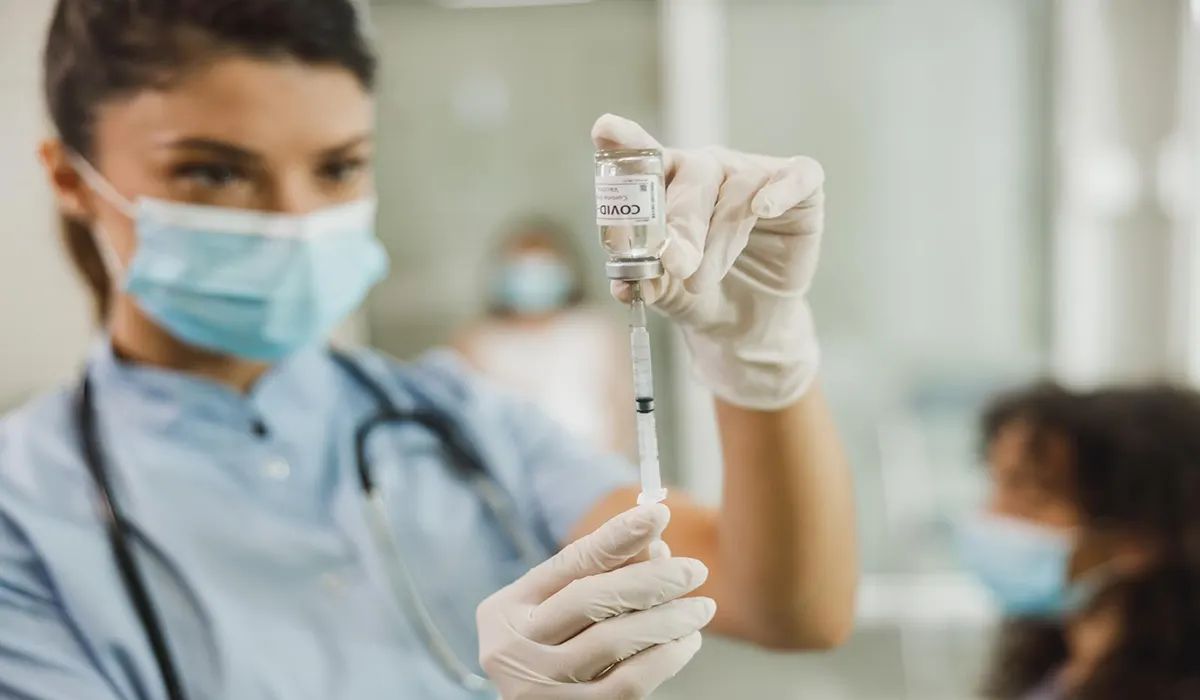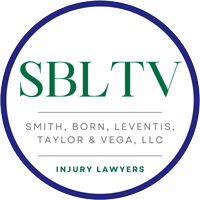
A Guide to SC Workers’ Compensation for Health Care Workers
Learn how workers’ compensation can help if you suffer an injury, illness or disease while working in health care in South Carolina
Health care workers like doctors, nurses, pharmacists, lab techs and radiology technicians dedicate their lives to caring for others, often at the expense of their own health and safety. With the demanding nature of the health care profession, it’s not surprising that hospitals are among the most hazardous workplaces.
In 2019 alone, U.S. hospitals recorded 221,400 work-related injuries and illnesses—a staggering rate of 5.5 for every 100 full-time employees, nearly double the rate for private industry overall.
If you are a health care worker who’s been injured on the job in Columbia, South Carolina, it’s crucial to understand your rights and options regarding workers’ compensation.
Have questions or need assistance with your claim?
The knowledgeable workers’ compensation attorneys at Smith, Born, Leventis, Taylor & Vega are here to guide you through the process so you can feel confident you’re getting the benefits you deserve.
Why is health care such a dangerous industry?
The health care industry is considered particularly hazardous due to a unique combination of factors that create a high-risk environment for workers.
So, what is the most common injury for health care workers?
Perhaps the biggest risk for many health care workers is the physical demands that come with manually lifting and turning patients and helping them transfer in and out of bed for different procedures or simply to use the bathroom. This kind of activity requires significant strength and stamina and also puts workers at a high risk of musculoskeletal injuries like strains and sprains.
Other risk factors include:
- Exposure to infections and diseases. Regular interaction with patients suffering from various infectious diseases puts health care workers at risk of exposure to pathogens.
- Needlestick injuries. The use of needles and other sharp instruments can lead to injuries that pose a risk of transmitting bloodborne pathogens.
- Chemical and drug exposure. Handling medical waste and exposure to medications and disinfectants can pose chemical hazards like respiratory issues and skin problems.
- Workplace violence. Health care workers face a significant risk of violence from patients or their families, often due to the high-stress nature of medical settings.
- Mental and emotional stress. The high-pressure environment, especially in areas like emergency rooms and intensive care units, can lead to burnout, stress and mental health issues. In fact, a recent 2023 study found the rate of suicide among nurses was 16 per 100,000, compared to 12.6 for non-healthcare workers.
- Long and irregular hours. Extended shifts and night work can lead to fatigue, which increases the risk of accidents and diminishes overall health.
- Slip, trip and fall hazards. Fast-paced work environments, combined with frequent spills and various equipment, increase the risk of these accidents that can lead to serious injuries like broken bones, head trauma, and spinal cord injuries.
- Ergonomic challenges. Many tasks in health care require repetitive motions or positions that are not ergonomically optimal, leading to repetitive strain injuries like carpal tunnel syndrome and chronic pain syndrome.
- Radiation exposure. For workers in radiology and certain other specialties, there is the additional risk of exposure to harmful radiation.
Given these diverse and significant risks, health care settings require stringent safety protocols and continuous training to protect workers. Understanding and mitigating these hazards is crucial for the well-being of health care professionals.
Are health care workers in South Carolina eligible for workers’ compensation after an injury or illness?
Yes, health care workers in South Carolina are generally eligible for workers’ compensation following an injury, illness or disease that is work-related. Under South Carolina workers’ compensation laws, most employees, including those in the health care sector, are covered if they work for an employer with 4 or more employees. This includes doctors, nurses, technicians, hospital support staff, and other health care professionals.
To be eligible for workers’ compensation benefits, the injury, illness or disease must have occurred in the course of employment and be directly related to the worker’s job duties. This can include injuries resulting from physical tasks like lifting patients, exposure to infectious diseases, needlestick injuries, or occupational diseases or conditions that develop over time due to the demanding nature of health care work.
Once an injury or illness occurs, it’s important for the worker to report it to their employer within 90 days and seek medical attention. The employer is then responsible for reporting the injury to their workers’ compensation insurance carrier, but the worker may need to provide documentation and evidence supporting the claim that the injury or condition is work-related.
Know Your Rights and Responsibilities:
SC Workers’ Compensation Eligibility
Learn about workers’ compensation, including eligibility requirements and filing deadlines.
What benefits does workers’ comp offer beyond my hospital-provided health insurance and sick leave?
Workers’ compensation provides several types of benefits that extend beyond the scope of hospital-provided health insurance and sick time, particularly tailored to support workers who have suffered job-related injuries or illnesses. These benefits include:
- Medical expense coverage. Workers’ compensation covers all necessary medical treatments related to the work injury or illness. This includes doctor visits, hospitalization, surgeries, medications, physical therapy, and any required medical devices or rehabilitation services. Unlike typical health insurance, workers’ comp usually covers 100% of the medical costs without deductibles or copays.
- Vocational rehabilitation. If you’re unable to return to your previous job due to your injury, workers’ compensation covers vocational rehabilitation services. These services assist you in acquiring new skills or training for a different type of employment.
- Permanent disability benefits. For injuries that result in permanent total or partial disability, workers’ comp provides additional financial benefits that vary based on the nature and severity of the injury.
- Wage replacement benefits. If your injury or illness prevents you from working, workers’ compensation provides wage replacement benefits. These benefits are a portion of your regular earnings (typically around two-thirds of your average weekly wage) and are provided during the period you are medically unable to work.
- Death benefits. In the tragic event of a worker’s death due to a job-related injury or illness, workers’ compensation provides death benefits to the worker’s dependents. This typically includes a portion of the deceased worker’s salary and may cover funeral and burial expenses.
These benefits are designed to ensure that workers who are injured or become ill due to their job receive comprehensive support, not just for medical expenses but also for their overall financial stability and ability to return to work.
Can I still get compensation if the accident that caused my injury was my fault?
Yes, in most cases, you can still receive workers’ compensation even if the accident that caused your injury was your fault. Workers’ compensation is a no-fault system, meaning that it provides benefits regardless of who was responsible for the accident.
Under this system, the focus is not on fault or negligence but rather on the fact that the injury occurred in the course of employment. This approach ensures that workers are protected and supported in the event of work-related injuries, without the need for lengthy investigations into fault or liability.
However, there are some exceptions where fault might play a role, such as if the injury was caused by the worker being under the influence of alcohol or drugs or if the worker was violating company policy or engaging in illegal activities at the time of the accident. In such cases, the worker might be denied workers’ compensation benefits.
If you have any concerns or your claim becomes complicated, consulting with a workers’ compensation attorney can be beneficial to understanding your rights and ensuring that you receive the appropriate benefits.
Get help from an experienced Columbia work injury attorney
If you’re a health care worker in Columbia, SC, who has suffered a serious injury or illness due to your job, you don’t have to navigate the workers’ compensation process alone. Smith, Born, Leventis, Taylor & Vega are here to support and guide you every step of the way.
Our expertise in workers’ compensation law means we’re uniquely equipped to handle your case with the care and attention it deserves.
Contact us today for a free consultation, and let us help you secure the benefits you need to focus on your recovery and return to the vital work you do in health care.

